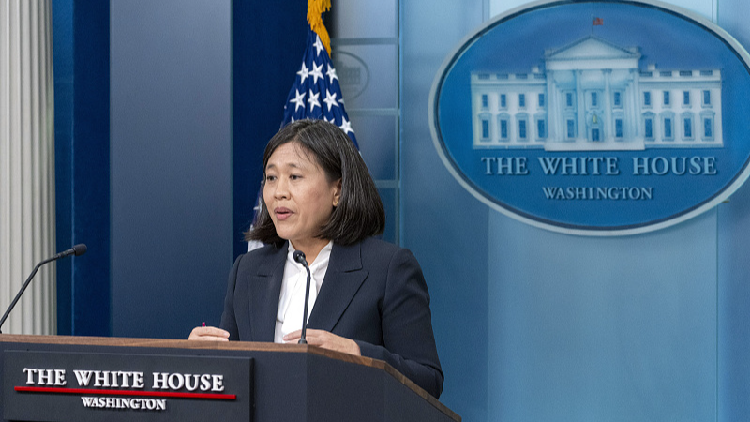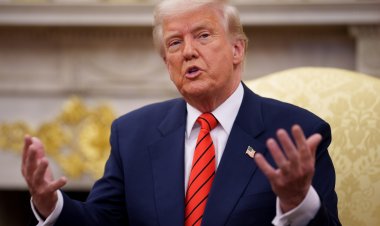U.S. Economists, Trade Organizations Express Worries About Tariffs on China
The Office of the U.S. Trade Representative (USTR) is anticipated to announce its final decision regarding the proposed "modifications" to its actions targeting China under Section 301. In response, U.S. economists, trade associations, and international organizations have raised concerns and expressed disappointment, cautioning that the implementation of additional tariffs could adversely affect U.S. businesses and consumers.

On May 14, U.S. Trade Representative Katherine Tai announced that President Joe Biden has instructed her to "take further action" on China tariffs following the release of a mandatory four-year review of Section 301 tariffs. The proposed "modifications" aim to increase tariffs in "strategic sectors," including batteries, electric vehicles, semiconductors, and steel and aluminum products.
At the end of May, the USTR issued a Federal Register notice proposing tariff modifications under Section 301, along with the machinery exclusion process, and invited public feedback. On July 30, the USTR confirmed that it will continue to evaluate all comments and anticipates issuing a final decision in August.
Earlier this year, the U.S.-China Business Council (USCBC), a private, nonpartisan, nonprofit group comprising over 270 American companies operating in China, expressed disappointment with the Section 301 review's outcomes. USCBC President Craig Allen stated, "We are disappointed with the outcome because maintenance of the prior tariffs – with no reductions – and imposition of additional tariffs ultimately make it harder for American companies to compete in the U.S. and abroad, cost American jobs, and increase prices for U.S. manufacturers and consumers during a time of ongoing inflation."
Allen also noted, "As USCBC requested in our public comments, we appreciate USTR's creation of a tariff exclusion process so that U.S. companies can request needed and common-sense relief, but its scope appears narrow."
Jeffrey Sachs, an economics professor and director of the Center for Sustainable Development at Columbia University, told Xinhua that the newly proposed tariffs violate America's commitments to the World Trade Organization, hurt consumers, and escalate geopolitical tensions.
In an opinion piece earlier this year, William Alan Reinsch, Scholl Chair in International Business at the Center for Strategic and International Studies, warned that the real victim of this decision is the environment. He stated, "Since we rely on China for key elements of the green transition, notably solar cells, batteries and the critical minerals that go into them, the effect of the tariffs will be to make those products more expensive and to slow down the transition that will help the United States meet its climate obligations."
Further commenting on the issue, Reinsch remarked, "The administration's trade policy is based on politics, and this decision is no exception. It is designed to get out in front of (Donald) Trump on tariffs and inoculate Biden against the inevitable accusation that he is soft on China."
Supporting this viewpoint, Gary Clyde Hufbauer, a nonresident senior fellow at the Peterson Institute for International Economics, expressed his belief that the USTR will implement minimal changes in Section 301 tariffs after public input. Hufbauer, a former U.S. Treasury official, explained, "The reason is that the Democrats don't want to give Trump an opening to complain that they are 'soft on China.'" He added that existing tariffs have already been reflected in consumer and business prices, leading firms that hoped for relief to ultimately abandon that expectation. "Neither (Kamala) Harris nor Trump will (offer) much relief for the next four years," he remarked.
In late June, the International Monetary Fund (IMF) issued a statement following its 2024 Article IV Mission to the United States, indicating that "the ongoing intensification of trade restrictions and the increased use of preferences in the treatment of domestic versus foreign commercial interests represent a growing downside risk for both the U.S. and the global economy." The IMF staff further noted, "Tariffs, nontariff barriers and domestic content provisions are not the right solutions since they distort trade and investment flows and risk creating a slippery slope that undermines the multilateral trading system, fragments global supply chains and spurs retaliatory actions by trading partners." They concluded, "These policies are ultimately bad for U.S. growth, productivity and labor market outcomes, and the evidence suggests their costs are largely borne by U.S. consumers and firms."
Ken Montgomery, executive director of the Technology Trade Regulation Alliance (TTRA), stated that the organization believes tariffs under Section 301 have not effectively addressed trade issues between the U.S. and China. He mentioned that TTRA "has long advocated addressing these issues in bilateral policy discussions." Montgomery added, "These additional tariffs will increase the input costs and prices for technology products for consumers and businesses, increasing inflation in the U.S. In addition, U.S. businesses will be less competitive with foreign suppliers due to these added costs and increased prices."
Lastly, Thomas Rosensweet, president of Newport Metals, LLC, explained that their product, magnesium anodes used to prevent corrosion in underground pipelines, is "only made in China because China produces more than 85 percent of the world's supply of magnesium." He noted, "Because of the high quality of Chinese magnesium and the 100 percent U.S. anti-dumping duty on pure magnesium from China ... the tariff amounts to a tax that is ultimately paid by the users" in the United States.
Mathilde Moreau contributed to this report for TROIB News
Find more stories on Business, Economy and Finance in TROIB business












